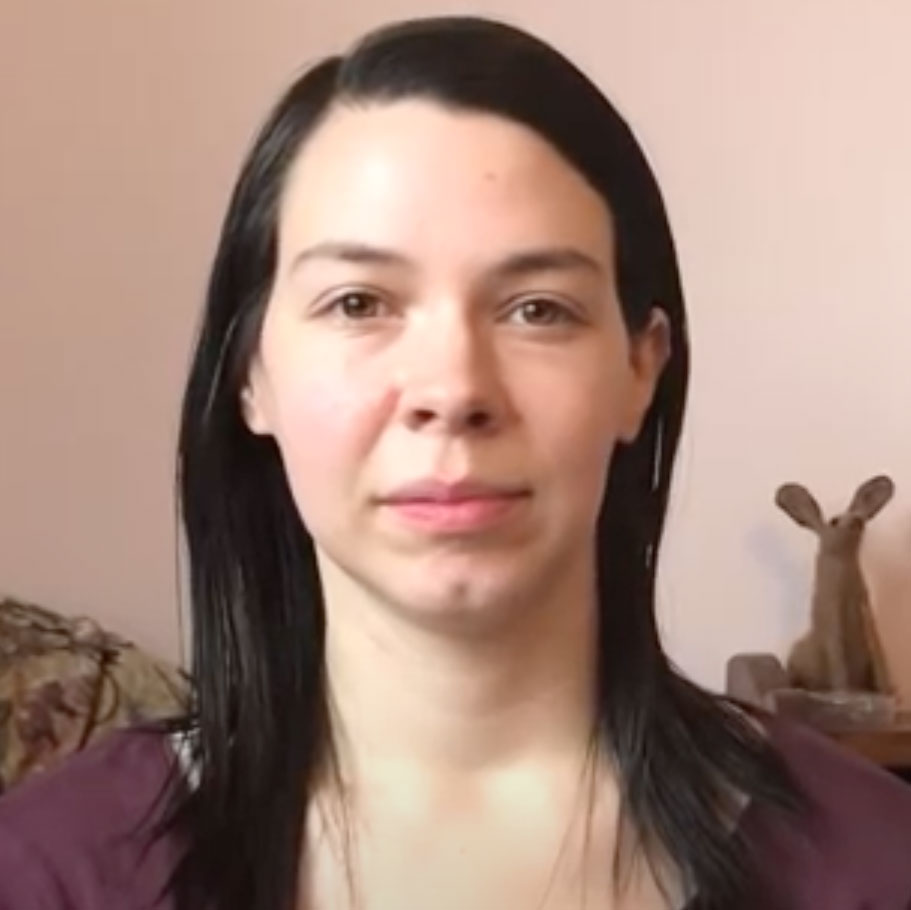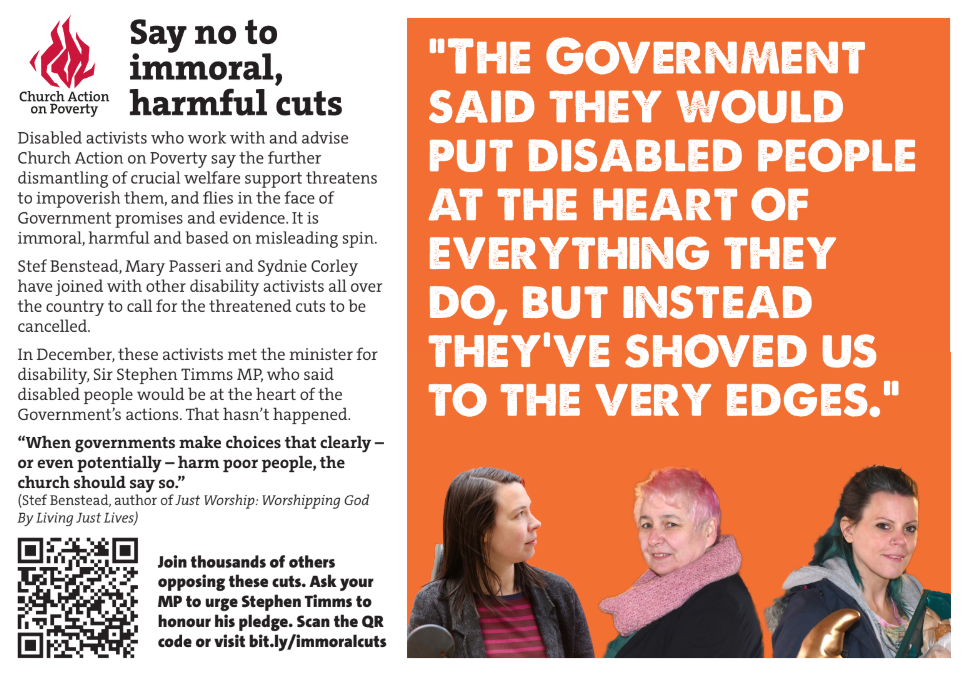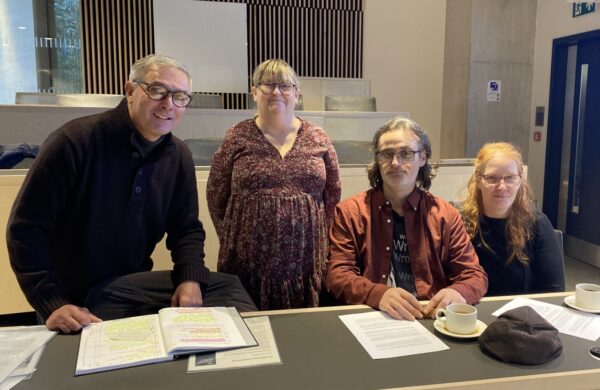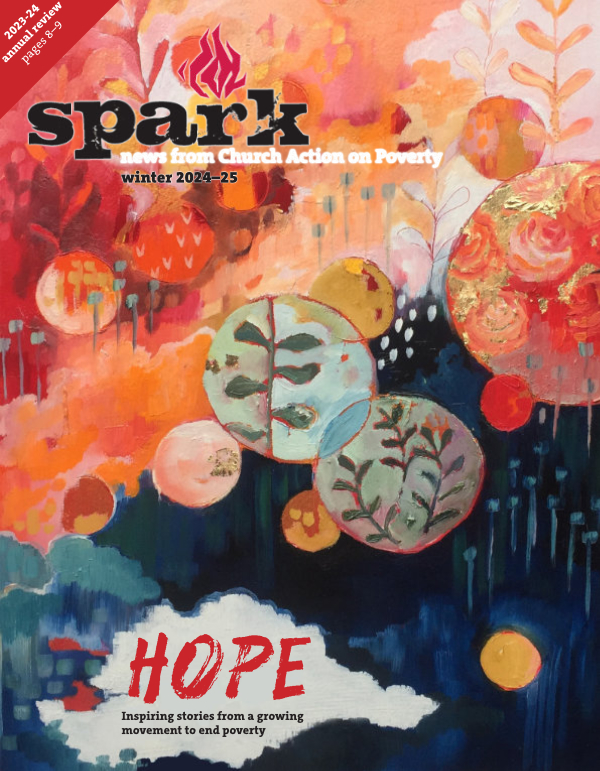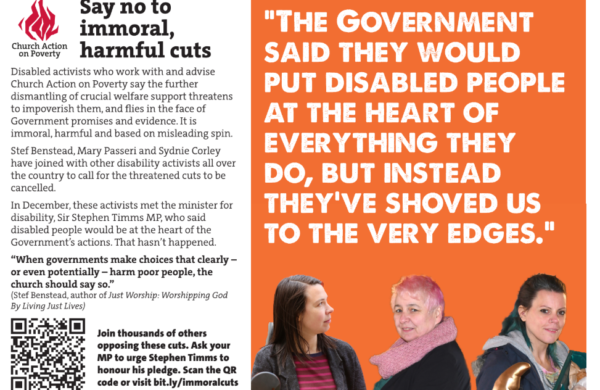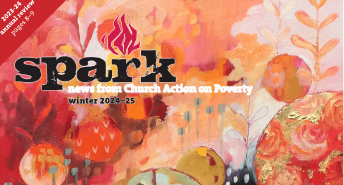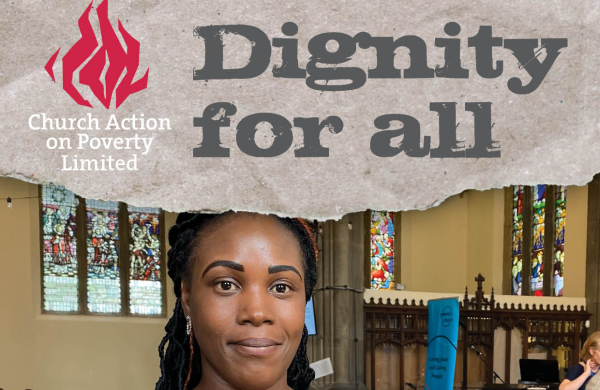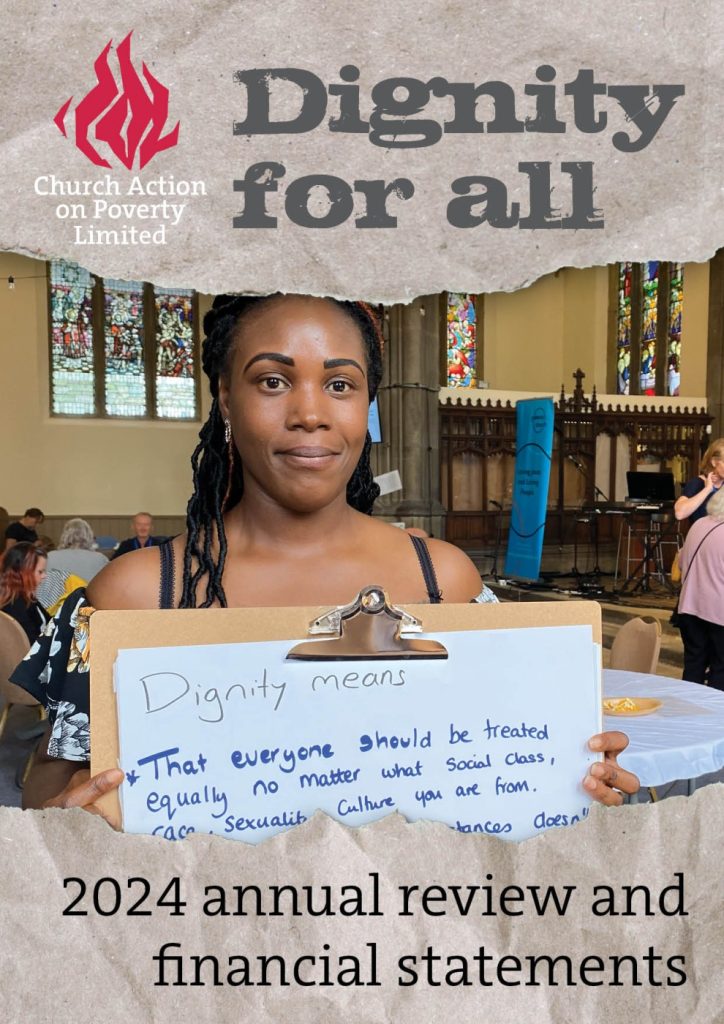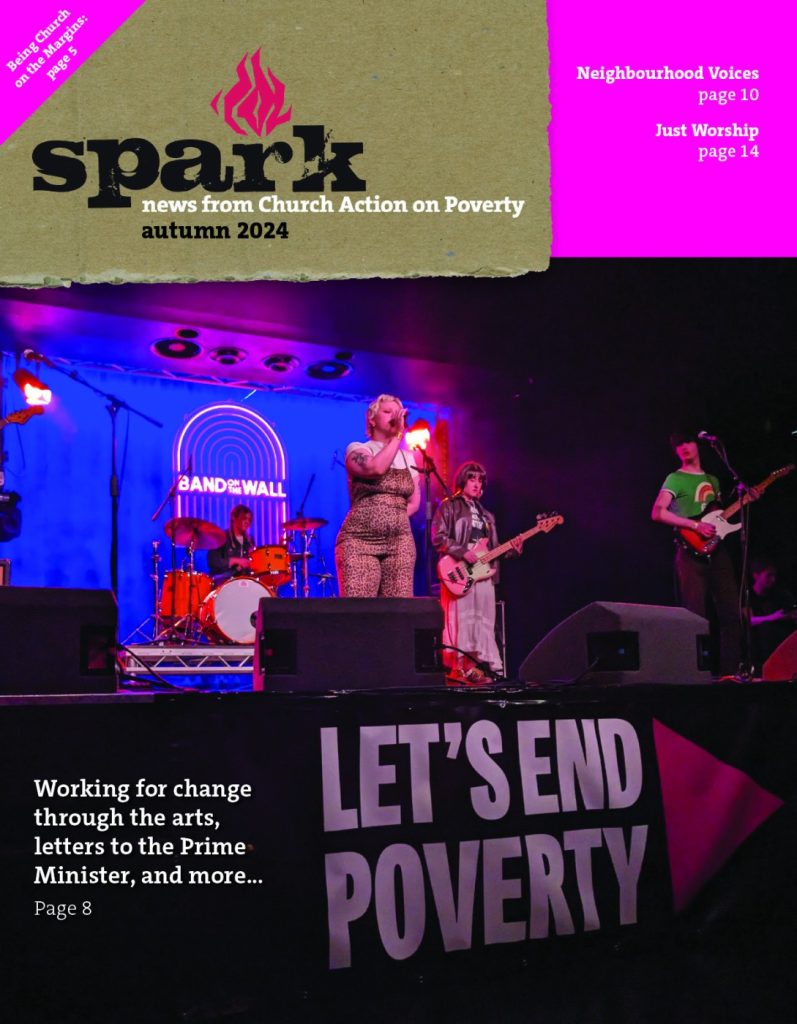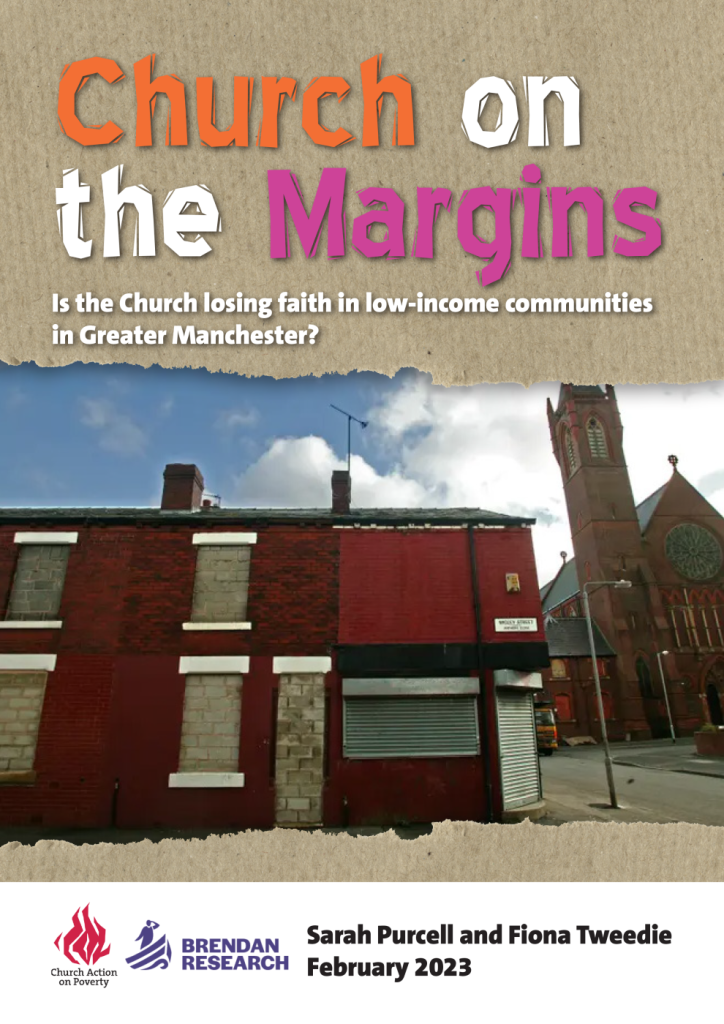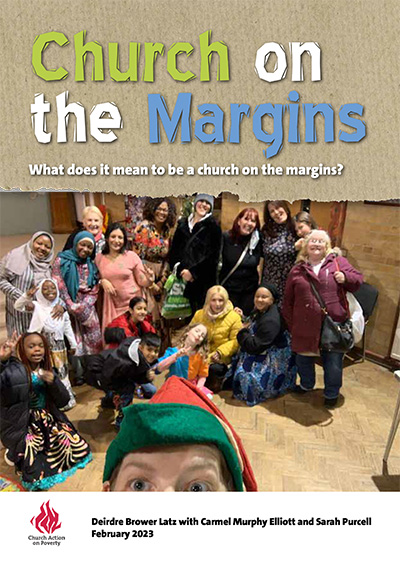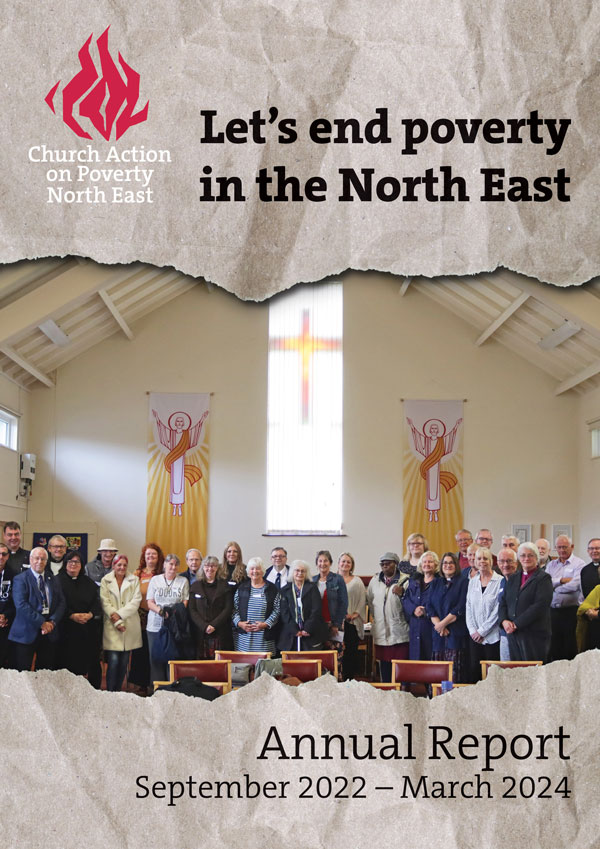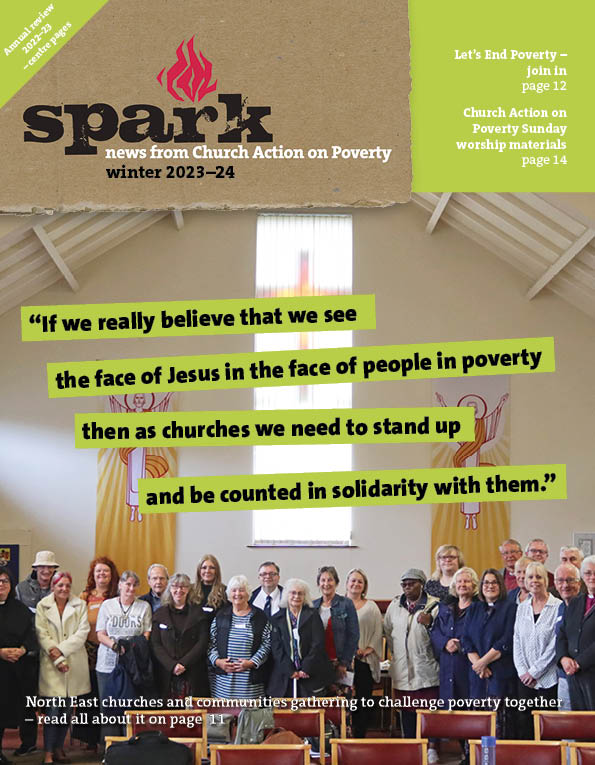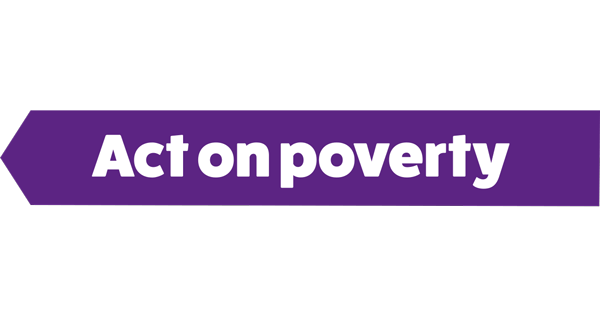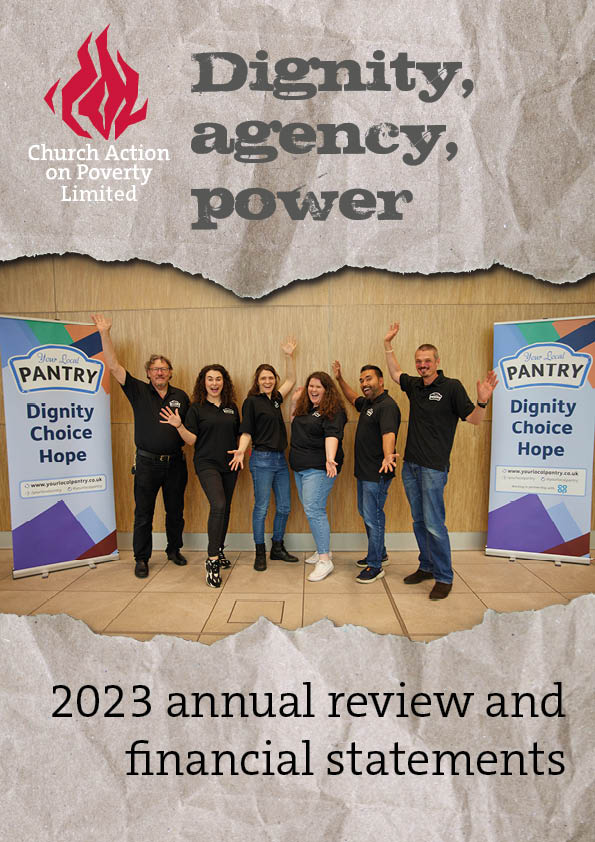The Sunday next before Lent, 11 February 2024
Reading: Mark 9:2-9
The Transfiguration which we read about in today’s Gospel presents us with an amazing incident in the life of Jesus. What does it mean for Jesus to have been transfigured though? It seems to me that to transfigure means to transform – Jesus’ appearance was transformed as the glory of God rested upon him. It was as if he had the Daz treatment, for those of you who remember the advert, for in the words of our gospel, ‘his clothes became dazzling white.’ And that got me thinking – in what ways has God transformed our lives, I wonder? To start the ball rolling, I would like to share with you some of my experiences of transformation that occurred one Lent, the season we are soon to begin once again.
Lenten solidarity
Over 20 years ago now, my wife Emma and I chose to take up a Lenten challenge issued by the charity, Church Action on Poverty. The challenge was to try to live on the minimum wage (now called the national living wage) for Lent. To live on it as an act of solidarity with the three million people who live on this amount (or less) in our country each year. Would we be able to do it, we wondered, or had we bitten off more than we could chew? To try and make the challenge possible for those who had bills already paid by standing order for their mortgage and utilities, Church Action on Poverty devised a particular formula to discount those costs. The remaining money had to cover our food, our transport, our own spending allowance, any unexpected bills that cropped up, etc.etc. Let me tell you it was hard going. … At the beginning of Lent we were actually on a pre-booked holiday at the house of some friends in the Lake District. On the first day Emma wrote this: “It’s frustrating being on holiday unable to spend money and do things we would normally do. I feel slightly cheated.” The following week we were back at home again and my back was playing me up once more as it often does requiring treatment and I wrote this: “I think I am going to need to go to the osteopath but the cost is putting me off but Emma says go.” Perhaps one of the most difficult moments of that six-week period occurred just after Emma had booked a Virgin Value Saver to go down to London. It was in order to see a friend, as she had previously arranged and we decided it would be good for her to have a little treat out. The next day she received an e-mail from that friend saying she would have to re-arrange the date. The money she had spent went down the drain instantly, money we dearly needed to spend on other things, such as a new pair of shoes since mine had a hole in and were letting in water.
Blessed are you who are poor?
Such a challenge, to live on the Minimum Wage, transformed the way I experienced Lent that year. It gave me something of an insight into what it must be like to live on a low income on a permanent basis, as many do today. We stuck it out for those six weeks, just, but it was beginning to drain us mentally and physically. Spiritually, however, it gave me a real insight into that verse from the Beatitudes, “Blessed are you who are poor for yours is the Kingdom of God.” One of the ways that has been translated is “Blessed are you who know your need of God; God’s kingdom belongs to you.’ When you are struggling to live on or below the poverty line, it certainly can increase your spiritual awareness. For if the money for things is not there, God may be the only person you have left to rely on to provide for your needs. That is certainly true for many Christians in the underdeveloped countries of our world, as well as for those who live by faith as individuals and in Christian communities in our country. But, in addition to increasing my awareness of my need for God, living on the Minimum Wage brought me an increased awareness of the needs of others. Those who struggle day by day to make ends meet, who live on a low income or on benefits. “Blessed are you who are poor, for yours is the Kingdom of God.” Could it be that God has something to teach us through those who are materially poor about our openness (or lack of it) towards God?
Church Action on Poverty Sunday
Today, in the Christian calendar, it is Church Action on Poverty Sunday. Church Action on Poverty is a national ecumenical Christian social justice charity committed to tackling poverty in the UK. They work in partnership with churches and with people in poverty themselves, to tackle the root causes of poverty. Let me share with you a short video they have produced. Please use this prayer card you have received on entering church today to pray for their work. You may also wish to give something to support them as well.
Life in all its fullness
To conclude, I want to return to our Gospel reading where we began this morning. Jesus was transfigured, or transformed for a particular purpose, namely to reveal God’s glory to those disciples in order that they might understand more of God’s desires for them. “This is my Son, whom I love, listen to him.”. Now we may often fail to understand God’s purposes through Jesus (just as the disciples did) but that did not invalidate the transfiguration. So this week, this month, this year, will we be those people whose lives are continually transformed by God, not just in order that we may reach towards our potential of becoming the people God wants us to be, but also in order that others too may discover God’s good intentions for their lives? And part of that, I believe, is lifting people out of poverty so that they may experience life in all its fullness, as Jesus describes it in John’s Gospel.
Amen
